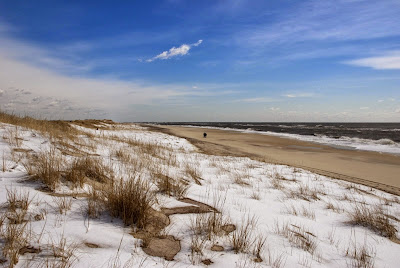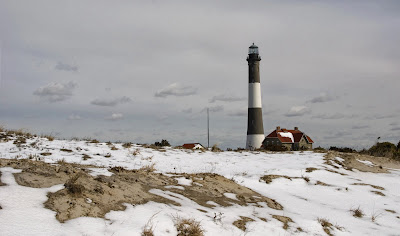 By Dennis Leon, DVM
By Dennis Leon, DVM
As everyone probably knows by now, there is a nationwide recall on specific canned dog & cat foods manufactured by Menu Foods and sold under various other brand names. Affected pets seem to have signs and symptoms of kidney disease, including, but not limited to anorexia, lethargy and vomiting. A complete list of foods currently affected by this mass recall can be found at:
http://www.menufoods.com
Most of the foods affected are cheaper "supermarket brand" foods, but included on the list are a few manufacturers who sell "premium" foods: Iams, Eukanuba, Science Diet and Nutro. Not all of their foods are affected by the recall -only specific canned foods produced at a specific plant in Kansas within a certain date range. More specific info can be found at the following sites:
http://us.iams.com/iams/...
http://www.hillspet.com/menu_foods/...
http://www.nutroproducts.com/menufoods.asp
Menu Foods says they have narrowed down the culprit to wheat gluten, an ingredient used in the affected foods. They had a "new" distributor for wheat gluten at their Kansas manufacturing plant between 12/3/06 and 3/6/07. It is unclear at this time what other foods were manufactured in this time range using wheat gluten from the same source. Other manufacturers and brand names of food may or may not be recalled as more information is gathered.
If you have any of these affected foods with matching date and plant codes, discontinue feeding them immediately. Iams, Eukanuba, Science Diet and Nutro all carry a 100% guarantee, so you will get refunded for the food. I have also been advising clients to discontinue feeding (or eating?) ANY food containing wheat gluten until the food companies and FDA sort out this whole issue.
For more information, contact:
Dennis Leon, DVM
Levittown Animal Hospital
2703 Hempstead Turnpike
Levittown, NY 11756
516-796-2266
----------
Dr. Dennis Leon is the owner and chief veterinarian at Levittown Animal Hospital. After working in a variety of small animal practices since 1992, he earned his veterinary degree from Cornell University in 2001. Following his veterinary education, Dr. Leon worked in a busy multi-doctor practice in Hayward, CA, where he also served as a veterinary consultant to the City of Hayward Animal Services Bureau, Hayward Animal Shelter, Alameda County Animal Control and San Leando Animal Shelter. His professional interests include preventative medicine, anesthesiology, pain management, kidney disease and and obesity treatment.
Welcome to the Long Island Blog - Long Island's blog for exchanging ideas, info and express opinions with the Long Island, New York Community. 
This blog is owned & maintained by LongIsland.com
Long Island's Favorite Online Community & Resource 21 Years and counting!
Wednesday, March 21, 2007
Important Information About the Pet Food Recall
Fire Island
First day of Spring and the snow is melting!
As the temperature rises, people visit the beach for long walks and fresh salt-air.
This photo was taken just east of Parking Field 5 of Robert Moses State Park.
Sunday, March 18, 2007
Fire Island in Winter
A panoramic view of Fire Island, today, after the snow of the last two days.
It was a beautiful day!
Many people were walking the walkways and along the beach for fresh air, exercise and sunshine.
Beautiful...in winter or summer!
Click on the photo to see the larger version.................photo by Alida Thorpe
Saturday, March 17, 2007
The Homeowners Insurance Adventure Continues
 BY AARON STEIN
BY AARON STEINThese days, the insurance industry, especially in catastrophe hurricane exposed areas like Long Island, is changing very quickly. This is very different from not too long ago. Insurance companies and their employees tend to be very conservative, resisting changes sometimes for years before caving in. Agents tend to be the same, because our job is to protect against risk of loss, as opposed to many other business and personal models, where taking risks is part of the fun.
These days, change is fast and drastic. I have not posted here in about a month and a half, but in that time, several more carriers have stopped or severely cut back on writing home insurance on Long Island, especially within a half mile of the water. The latest one I heard about was State Farm, who stopped writing new policies within 2500 feet of the Bay. Adirondack Insurance recently severely limited their new policies in all of Suffolk County regardless of distance to water, and New York Central Mutual is not only limiting new policies, but they recently became part of the group that is actually canceling people.
Allstate continues to cancel thousands of policyholders, though they have made some efforts to bring other companies to the table so that their Long Island agents still have something to sell. There are almost no new players coming in to the New York market, except for some 'excess lines' carriers such as Lloyd's of London and Lexington Insurance Company. These carriers write policies at a much higher price, but at least they make coverage available.
If it turns out you are forced to seek insurance from one of these non-standard companies, be sure the agent you are dealing with has experience with them, especially with waterfront home insurance issues, and knows what to look for. We have seen policies that COMPLETELY EXCLUDE wind damage! What is the point of having insurance if you are not covered for a hurricane, which is just a big windstorm with a name? Some of these policies also carry exclusions for pets, underground oil tanks, and other unusual clauses. We have also seen policies that offer 'actual cash value' coverage on the structure itself, which takes depreciation based on age, as opposed to a 'regular' homeowners insurance policy which insured at replacement cost.
Of course, these policies still do not cover flood damage even though they may cost 2-3 times more than what was considered normal for Long Island home insurance only a couple of years ago. Flood insurance continues to be available through your local agent via the FEMA National Flood Insurance Program, and excess flood insurance is available from a number of companies, when the $250,000 maximum building coverage through the FEMA program is not enough.
Remember also that if your policy is through an excess and surplus insurance company, you are NOT protected by the New York State Guaranty Fund. That fund provides up to $1,000,000 in coverage if an insurance carrier defaults or becomes insolvent. Lloyd's prides itself on never having defaulted on a claim in over 100 of years of existence. And Lexington is part of AIG, the world's largest insurer. Still, the fact is they are not subject to regulation by the New York State insurance department, nor backed by the Guaranty Fund.
Another solution that is being used is the New York Fair Plan, otherwise known as NY Property or NYPIUA. That is a state-run operation that was designed to provide basic fire insurance for properties in blighted areas or which have other problems. But the policies provide NO liability insurance, no theft coverage, no coverage for burst pipes, and have many other restrictions. Again, in some cases, this may be your only practical option, but you need to be aware of just what you are buying. We have come across insurance offices here on Long Island telling their clients that they are getting a homeowners policy from NY Property, and nothing could be further from the truth.
As always, for more information, visit our sites at www.NYInsuranceWithService.com or www.FloodInsuranceNY.com.
Friday, March 16, 2007
Help Keep Internet Radio Online
On March 2, 2007 the Copyright Royalty Board announced new royalty rates for all Internet Radio stations, with the new rates retroactive to January of 2006. These new rates are significantly higher than expected and are many times over what is being paid now. In fact, if they remain unchanged, many or perhaps most online radio stations will have to cease operations after having had to declare bankruptcy due to the retroactive-to-2006 aspects of these new rates.
Internet Radio is treated differently than Terrestrial (broadcast) Radio. While both Internet and Terrestrial Radio pay royalties to BMI, SESAC and ASCAP, when it comes to record labels and artists, Terrestrial Radio pays no royalties -- none at all. It is only Internet Radio stations that must pay royalties to Sound Exchange at a rate is set by the US Copyright Board.
In 2002, Congress passed the "Small Webcaster Settlement Act," that forced Sound Exchange to offer to small Webcasters a rate based on a percentage of revenue.
Last year, a new round of hearings was held by the Copyright Royalty Board to determine new rates for the 2006-2010 periods. The hearings lasted several months. Then, three judges retired to deliberate and render a decision, which decision was announced on Friday, March 2, 2007. The surprise in their decision was the elimination of the "Small Webcaster Settlement Act." This meant all small Webcasters could no longer make Sound Exchange payments based on a percentage of their revenues.
The new rates essentially levy a fee of $0.0011 per performance per listener in 2007, escalating to $0.0019 in 2010. Since each hour, the average radio station plays 16 songs, that's about $0.0176 per hour, per listener in 2007. An Internet Radio Station with a 500 listener average would now be required to pay $211 per day, $6,336 a month or $76,000 for the 2007 year!
This amount of money is beyond the resources of the small independent Internet Radio Stations, many of which are run by enthusiasts and hobbyists. These small stations are the ones bringing new music and old favorites to us every day, with their playlist fine-tuned to their listeners' choices by their listeners themselves. Music like this can not easily be found on the corporate-owned mega stations, Internet or Terrestrial.
As royalty rates were 8% of gross revenues, a $76,000 fee under the new rates equates to gross annual revenues of $950,000 under the old rates. Yet the "gross annual revenues" enjoyed by a station with 500 listeners on average, are more in the $15,000 range; most of which are derived from listener donations with the station run on a "break-even"
basis.
To expect these stations to increase their donations five-fold to cover this additional cost in 2007 is folly. To expect them to also "find" over $50,000 to pay the retroactive 2006 fee is more than a little unreasonable.
The Copyright Royalty Board must have known this.
Without your help to repeal this unfair Internet-Radio-only "tax,"
re-instate the more equitable Small Webcaster Settlement Act, or perhaps even to extend the "Act" to also include Terrestrial Radio stations, March 2, 2007 will be added to February 3, 1959 as yet another... "day the music died."
Very truly yours,
Walter C. Schmidt
383 Second Ave
Massapequa Park, NY 11762
(516) 799-8300
waltsdorsai@gmail.com


